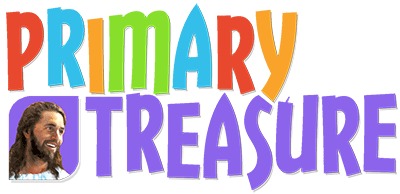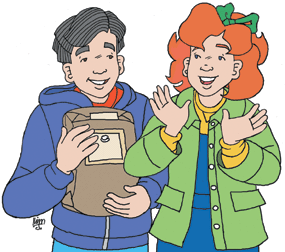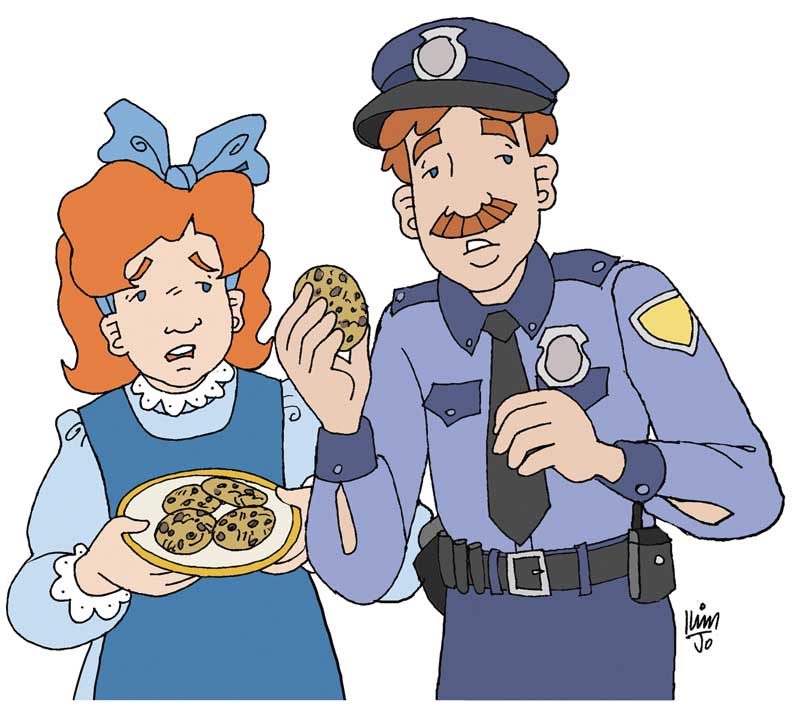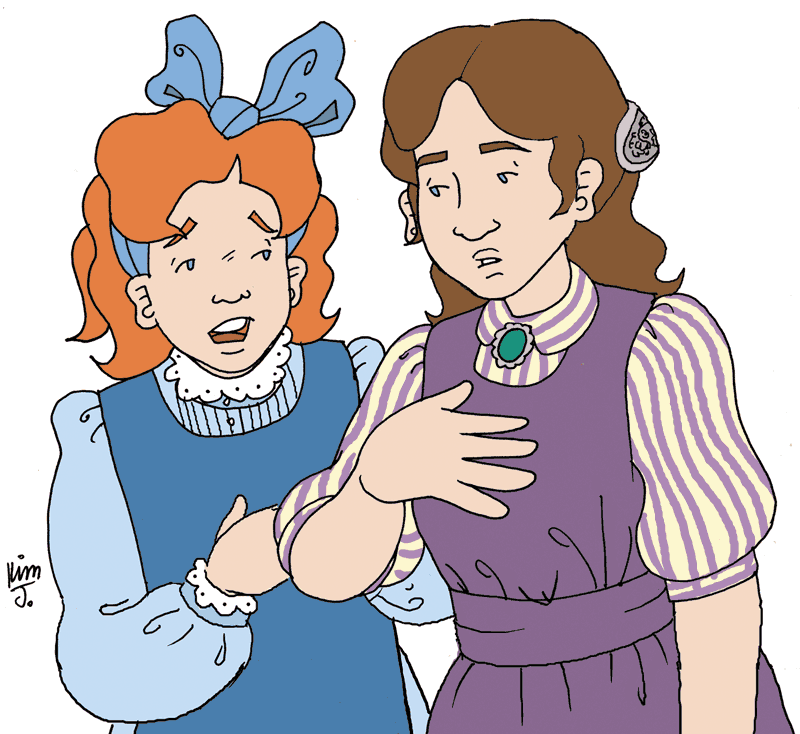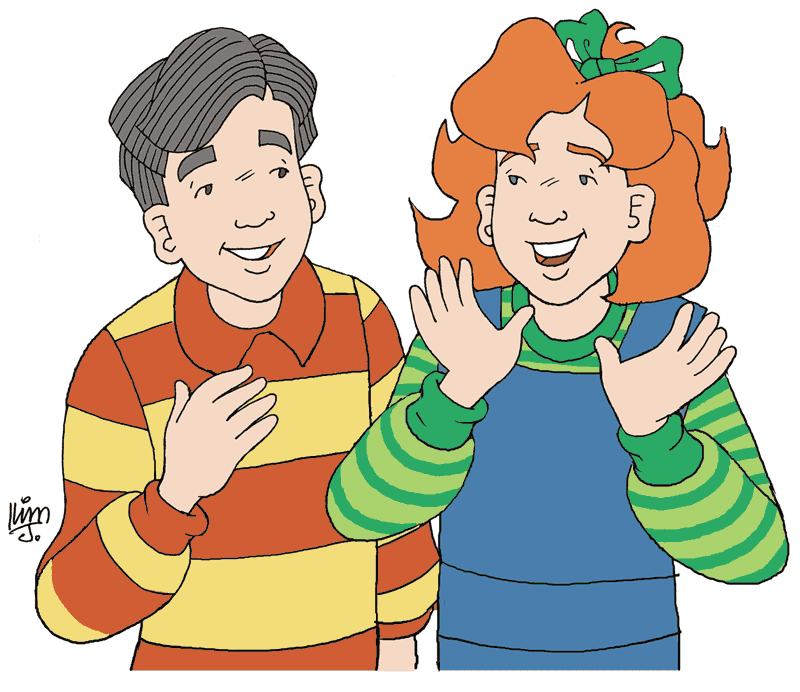
By Linda Porter Carlyle
MacKenzie Isabelle Evans looked at her mom. “Can Joseph come with us to the mill?” she asked.
“I suppose he’d want to take his hairy new friend along, wouldn’t he?” Mrs. Evans asked. “Do you really think I want dog hair all over my car?”
“Please, Mom!” Mac begged. “We can put a blanket on the seat. And Grace is a very good dog. You’ll love her when you get to know her!”
“OK. I guess so,” Mrs. Evans gave in.
“Yeah!” Mac exclaimed and picked up the telephone.
Grace leapt into Mac’s car when Joseph opened the door. “Grace likes riding in the car!” Joseph said. “That’s nice because it means she can go places with me.”
Mac giggled. “Wouldn’t it be terrible if you had a dog that got carsick?” She patted Grace’s head.
Grace licked Mac’s hands and then looked out the window as if she wanted to know where they were going.
“G.M. said to learn all I can about gristmills,” Joseph said as Mrs. Evans started the car. “She’ll probably make me write a report for school. Do you know anything about them?”
“I know a little bit,” Mac answered cautiously. “I know that gristmills are for grinding grain. Corn and wheat and stuff. The grains get crushed between big round rocks and they turn into flour. I would sure hate grinding grain by hand to make flour,” she added. “But I’m sure the women who did that in the olden days were really strong!”
“People built gristmills by creeks or rivers,” Mac’s mom put in. “The flowing water would turn the gears that turned the huge stones that crushed the grain. The mill we’re going to was built about 130 years ago by a pioneer in our area. The water in Little Butte Creek still turns the grinding stones today just like it did then.”
“Will you teach me how to make bread, too, when you teach Mac?” Joseph asked eagerly. “It sounds like fun! I like cooking.”
“Sure,” Mrs. Evans agreed. “It’ll probably be no more messy to teach two kids than one,” she teased. “But back to talking about gristmills. I think they must have been around just about forever because people all over the world make bread. Different kinds of breads maybe, but bread.”
“What do you mean, different kinds of bread?” Mac asked.
“Well, there is the kind of bread you are used to,” Mrs. Evans replied, “the kind you eat every day. And then there are other kinds—like tortillas.”
“Tortillas are bread?” Joseph asked.
“Sure,” Mrs. Evans answered. “The basic ingredients of bread are some kind of flour and water. Tortillas are made of corn flour and water, or wheat flour and water. If you add other ingredients to the flour and water, you get different kinds of breads.”
“Pizza is bread,” Joseph said. “Bread with toppings!”
“That’s right,” Mrs. Evans agreed. “When we get to the mill, you can look at all the different kinds of grains they sell and decide which ones you want to put into your bread.”
“This is going to be fun!” Mac exclaimed. She bounced on the seat. “Maybe we’ll invent a new kind of bread that’s never been made before! Maybe it’ll be the best bread ever!”
Mrs. Evans laughed. “I think every fresh batch of homemade bread is probably the best ever!” she said.
Mrs. Evans turned off the highway and drove slowly through the town of Eagle Point. She parked by an old brown building with red geraniums in front. The sign read, “Butte Creek Mill.”
“Why don’t you tie Grace to that post over there? Then she can get some fresh air while we’re shopping,” Mrs. Evans suggested.
Mac, Joseph, and Mrs. Evans climbed the wooden steps and entered the mill. It was cool and dark inside. The air smelled dry and dusty. Strange, old tools decorated the walls. Mrs. Evans pushed open a swinging door into the store part of the building.
Mac and Joseph looked around. They saw big brown paper bags stacked on shelves. They also saw big brown paper bags through the glass doors in a refrigerator that ran along one wall. Other, smaller, brown paper bags and plastic bags closed with twist ties filled the refrigerator.
“That’s corn meal,” Mrs. Evans said, pointing to plastic bags filled with sunny yellow flour.
“I like corn meal!” Mac exclaimed. “Can we put that in our bread?”
“Sure,” Mrs. Evans answered, opening the door and handing her a bag.
“What else is there?” Joseph asked.
Mrs. Evans looked at the shelves. “There’s rye flour, rice flour, and barley flour,” she said, reading labels. “And flour made from oats, millet, and bran.”
“I don’t know what all those things taste like,” Mac said, wrinkling her nose. “How can we put stuff in our bread when we don’t even know what it tastes like?”
“That’s a good point,” Mrs. Evans agreed. “You know you like corn meal, so we’re buying that. You like oats when we put them in cookies. I’m not sure you’d like the flavor of rye though.”
“OK,” Mac said. “Let’s get oats.”
Mrs. Evans handed her another bag. She pointed to one of the big brown paper bags in the bottom of the refrigerator. “That’s 25 pounds of whole wheat flour. Do you think you could carry it over to the counter for me?” she asked Joseph.
“This is heavy!” he exclaimed. A small cloud of dust rose up and made him sneeze when he dropped the bag on the old wooden counter.
“We need yeast too,” Mrs. Evans said, picking out a little plastic bag filled with tiny beige beads.
“Do you folks need help finding anything?” a woman asked as she came through the door and walked around behind the counter.
“I think we’re doing OK,” Mrs. Evans answered. “Half the fun of shopping here is looking around and seeing all the wonderful things you have.”
“We’re going to learn to make bread,” Mac told the clerk proudly. She put her bags down beside the big 25-pound one on the counter.
“That’s certainly a good thing to know,” the woman said. “What kind of bread are you going to make?”
“Missionary bread!” Mac said.
